Graham Reid | | 3 min read
The Camel, from the album What Is Now

Well, New York-based when he wasn't in Mumbai or Japan.
That New York City Swara album immediately got Elsewhere's attention, not just for Toronto-raised Bennett's admirably unusual globe-trotting but for its rare co-joining of jazz piano and Indian ragas forms, and more besides. (Did we mentioned he played in New Orleans bands?)
So recently when his publicist was in touch asking if we were interested in more by him the answer was a rapid and enthusiastic, “Yes please”.
In due course not one but two simultaneously released albums arrived, he now appearing under the name Richard X Bennett.
And these are also his first releases on an American label, Rope A Dope. (See their website here).
By my rough count these – Experiments With Truth and What Is Now – are about his fifth and sixth albums respectively but our attention immediately turns to Experiments With Truth (it's title taken from Gandhi's aurobiography The Story of My Experiments With Truth -- because here again, and this time with a gritty small ensemble, he errs towards the Indian.
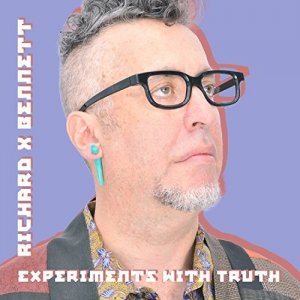 The opener is loosely
based on the lovely evening raga Malkauns but shifts the tone into a vigorous,
muscular nine minutes with tenor saxist Matt Parker and baritone
player Lisa Parrott, Bennett's left hand laying down the substructure
and the right rippling across the keyboards while Australian-born
bassist Adam Armstrong acts an intelligent anchor and drummer Alex
Wyatt offers often unexpected accents.
The opener is loosely
based on the lovely evening raga Malkauns but shifts the tone into a vigorous,
muscular nine minutes with tenor saxist Matt Parker and baritone
player Lisa Parrott, Bennett's left hand laying down the substructure
and the right rippling across the keyboards while Australian-born
bassist Adam Armstrong acts an intelligent anchor and drummer Alex
Wyatt offers often unexpected accents.
With the saxophones it is also has the same drive as a more considered Afrobeat, but in places coupled with Ellingtonian and flickering Mingus-bop . . . then free flourishes.
Any way you cut it this opener, entitled The Fabulist, is an attention-getter.
Bennett's attention on this album and the earlier NYC Swara is less on the complex rhythmic cycles (talas) which underpin and propel the raga form but more the melodic improvisations of instruments like sitar, sarod and slide guitar as well as those of vocalists . . . and instruments like the brusque (and at times sax-like) shehnai.
It is that attention to melody which seduces here on the mesmerising Portrait in Sepia, a languid ballad which evokes a warm Mumbai night in a jazz club as Parrott takes centrestage and as much time as she likes to unfurl the melodic lines . . . before Bennett enters with reflection and rebuilds from the bottom up then hands it over to Armstrong to do the same.
Later, The Way of Love Is The Way of Spirit enters with the paired saxophones declaiming before the whole branches out into something again closer to Mingus-in-Mumbai as Bennett holds things down with a minimalist lefthand figure.
The centrepiece on Experiments With Truth is the two-part Durga Suite which counterbalances the facets of that god's protective and destructive nature, and when The Destroyer is in the house it swings like pop-rock gone jazz-crazy.
The title track at the end -- with a subtle drone in the distance during its opening passages -- has all the swagger and weight of large, colourful and stately Indian elephants on the move through dusty urban streets.
Now, this may seem a curious connection to make – because the artists, the ethos and the outcomes are completely different -- but if the recent Kamasi Washington album Harmony of Difference was of interest, or indeed the idea of the free jazz albums Elsewhere pulled off its shelves recently for this column, then Experiments With Truth is an album for you . . . because you have ears ready for the different which devolves into newness, the vaguely familiar given a frisson of freshness, the challenge which pays dividends.
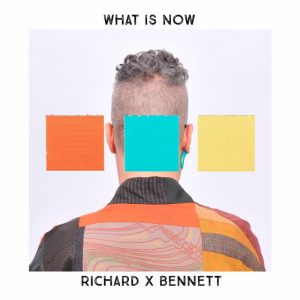 For the companion album
What Is Now there is a very different (but of course not dissimilar)
consciousness at work: the saxophonists are gone and the trio
recording defaults to Western song structure and includes a treatment
of the standard Over the Rainbow in a manner it's unlikely you have
previously encountered, sometimes cleverly reducing the tune to a
few familiar notes.
For the companion album
What Is Now there is a very different (but of course not dissimilar)
consciousness at work: the saxophonists are gone and the trio
recording defaults to Western song structure and includes a treatment
of the standard Over the Rainbow in a manner it's unlikely you have
previously encountered, sometimes cleverly reducing the tune to a
few familiar notes.
Although Bennett as a composer has a reach into what many might consider the exotic in his Indo-influenced work, here he shows he is just as comfortable writing ballads which have a sense of depth and poise (the strong opener Vital Grace and more reflective but equally powerfully delivered Silhouette), are quirky (the irritatingly catchy Go Against the Tide) or can be sprightly delights (Andiamo).
And Sefrou Soul – in which you may hear the powerful spirit of Dollar Brand/Abdullah Ibrahim – is a dark piece with its deep roots in gospel and blues.
So, two very different albums from a composer/pianist unlike any who might have crossed your path before.
Richard X Bennett is not going to be household name in this country – or possibly even a good name to drop because you'll be met with a shrug.
But these two albums should command your attention if you are ready for an artist who is on his own journey.
And he's a damn fine travelling companion . . . no matter what vehicle he chooses.

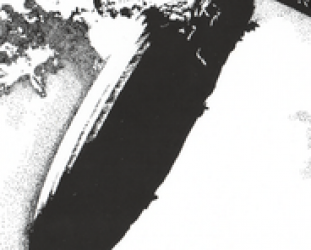
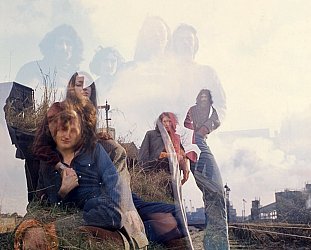
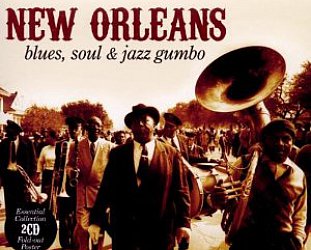

post a comment